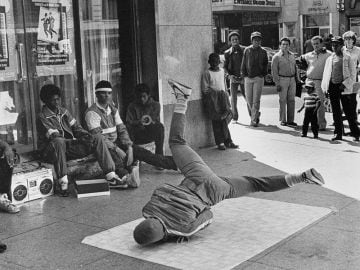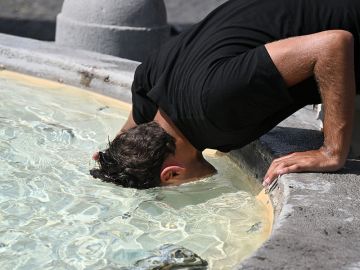Stunning photos of how tribes around the world are approaching modernity
Over the last century, tribes are being driven from their lands and traditions, and forced to embrace a majoritarian view of life. They are now in varying stages of reconciliation with ‘us’, the outsiders, with our notions of modernity and progress. However, with climate change and global warming at our doorstep, there’s a growing awareness of learning from indigenous tribal wisdom in protecting our environment, and changing the way we think about life on this planet
Image by : Ueslei Marcelino / Reuters
Image by : Ueslei Marcelino / Reuters
Brazil
In 2018, the Brazilian Institute of the Environment and Renewable Natural Resources, the country’s environmental regulator, fined the Pareci, Nambikwara and Manoki tribes a total of $33 million, and embargoed 40,000 acres of their land for partnering with non-native farmers in growing genetically modified crops like soy and corn in large-scale plantations on reservation land in Mato Grosso state.
The share of harvests, one-tenth or less, that the Pareci natives receive has helped them buy cars, smartphones, beds, widescreen TVs, freezers and broadband internet antennas. Environmentalists say the commercial farming, fuelled by an insatiable demand for Brazilian soy in China and other markets, will destroy native cultures. Not so, say Pareci elders, who point to advances made by their 1,800-strong tribe due to agricultural income, including better schools, health care and university grants.
Image by : Reinhard Krause / Reuters
Image by : Reinhard Krause / Reuters
Members of the Dongria Kondh tribe with the head of a goat that they sacrificed on top of the Niyamgiri Hills, which they worship as their living God. The tribe protested against plans by Vedanta Resources in 2010 to mine bauxite from the mountain range near Lanjigarh, Odisha. Vedanta denied allegations that its planned bauxite mine will violate the rights of indigenous tribespeople. The plan was blocked by the Centre and Supreme Court in 2013, but the tribals are alarmed by a 2019 Supreme Court ruling, ordering eviction of over 11 lakh tribals whose land rights are not settled by the state governments.
Image by : Patrick Riviere/ Getty Images
Image by : Patrick Riviere/ Getty Images
Aborigines were lined up to welcome British businessman Richard Branson when he arrived to launch his Virgin Atlantic airline venture between London and Sydney at Sydney Airport in 2004. Aborigines were victims of slavery and massacres by colonists, leading to an alarming decline in their numbers. Reconciliation between non-indigenous and indigenous Australians has increasingly become a significant issue in Australian politics.
Image by : Ivan Alvarado / Reuters
Image by : Ivan Alvarado / Reuters
A Mapuche Indian in a mask runs away from riot policemen during a protest against Columbus Day in Santiago, Chile. 2018 marked the 526th anniversary of Christopher Columbus’s arrival to the Americas. Many indigenous people in Latin America consider it the day Columbus brought slavery, disease, colonisation and genocide from Europe to the Americas.
Image by : Goran Tomasevic / Reuters
Image by : Goran Tomasevic / Reuters
A cattle herder from the Dinka tribe carries a weathered AK-47 rifle to protect his Zebu cows from cattle raiders near Rumbek in central South Sudan. After being embroiled in a decades-old civil war that has claimed over 2 million lives, the nomads have continued their age-old conflict with other cattle-keeping tribes. Armed raids to steal cows from the herds of enemy tribes have been commonplace since time immemorial. But the arrival of guns has changed these conflicts from hand-to-hand skirmishes with spears and bows and arrows to ambushes conducted by an enemy that often cannot be seen.
Image by : David Mercado
Image by : David Mercado
Danish chef Claus Meyer (left) eats a typical Bolivian dish called ‘falso conejo’ (faux rabbit), prepared by ethnic Aymara cook Isidora Ascencio (right), who works at IBIS, a Danish NGO that supports indigenous organisations, in La Paz, Bolivia. In 2011 Meyer, chef and co-founder of the Noma restaurant in Copenhagen (voted the the world’s best restaurant many times) was in Bolivia to work with IBIS to create a cooking school with a true Bolivian identity, using the organic ingredients that are commonplace in the country.
Image by : Lunae Parracho
Image by : Lunae Parracho
B. Munduruku Indian warriors hunt and detain an illegal gold miner in their territory in Para state. Seeing their land encroached upon by wildcat miners in search of gold, the Munduruku decide to take the law into their own hands, rather than wait for a court’s decision that could take years. The tribe’s leaders had travelledto the country’s capital earlier to demand the federal government to remove non-indigenous miners from their territory.
Image by : Adrees Latif / Reuters
Image by : Adrees Latif / Reuters
Members of the Canupawakpa Dakota Nation Unity Riders, of the Sioux Native American tribe, are photographed outside the United Nations offices after arriving on horseback in commemoration of the International Day of the World’s Indigenous Peoples in Manhattan, New York. The Riders made their way on horseback from Mantioba in Canada to New York, which they say is their native homeland, to build goodwill and better friendship with those who call the New York region their home now, they said.
Image by : Jason Lee / Reuters
Image by : Jason Lee / Reuters
In 2017, Aj Namo became the first Tibetan fashion designer to show at China Fashion Week in Beijing. But when the organisers offered her China’s well-known models, she declined. Instead, she selected young Tibetans from her hometown of Kangba, a small grassland township in western Sichuan, near Tibet. Seeing herself as an ambassador for Tibetan culture in Beijing, Namo wants to change pervasive Chinese perceptions of Tibetans and their culture as “backward”, a result of state propaganda.
Image by : Wolfgang Kaehler
Image by : Wolfgang Kaehler
A Kazakh eagle hunter with his golden eagle at a ger, a portable dwelling near the city of Ölgii in western Mongolia. The Kazakhs of western Mongolia are known for hunting with eagles, and each year, between February and April, around 200 families make the 150 km trip across the Altai Mountains, in temperatures of up to 40 degrees Celsius on their spring nomadic migration, that happens annually.
Image by : Eric Lafforgue/Art in All of Us/Corbis via Getty Images
Image by : Eric Lafforgue/Art in All of Us/Corbis via Getty Images
A Bodi tribesman sports DVDs as earrings during a Ka’el ceremony—observed during the tribe’s New Year celebrations in June—in Omo Valley, Ethiopia. The ceremony measures the body fat of the male contestant, and honours the fattest winner with fame and adulation of the tribe.
Image by : Thomas Mukoya / Reuters
Image by : Thomas Mukoya / Reuters
Sonyanga Olengais (left), captain of the Maasai Cricket Warriors, talks to his teammate Mamai Simon Papai during their T20 match against the Ambassadors of Cricket from India in Ol Pejeta Conservancy in Laikipia National Park, in 2013. The Maasai Cricket Warriors are role models in their communities, where they actively campaign against retrogressive and harmful cultural practices, such as female genital mutilation and early childhood marriages, while fighting to eradicate discrimination against women in Maasailand. Through cricket, they hope to promote healthier lifestyles and also spread awareness about HIV/Aids.
Image by : Ueslei Marcelino
Image by : Ueslei Marcelino
An indigenous man from the Gavião tribe receives a greeting from a Maori woman from New Zealand during the closing ceremony of the first World Games for Indigenous Peoples in Palmas, Brazil, in 2015. “We’re not looking to crown champions or find great athletes,” says Carlos Terena, organiser of the event. “This isn’t about competition, it’s about celebration. Competition is more a thing for the Western world anyway.”





